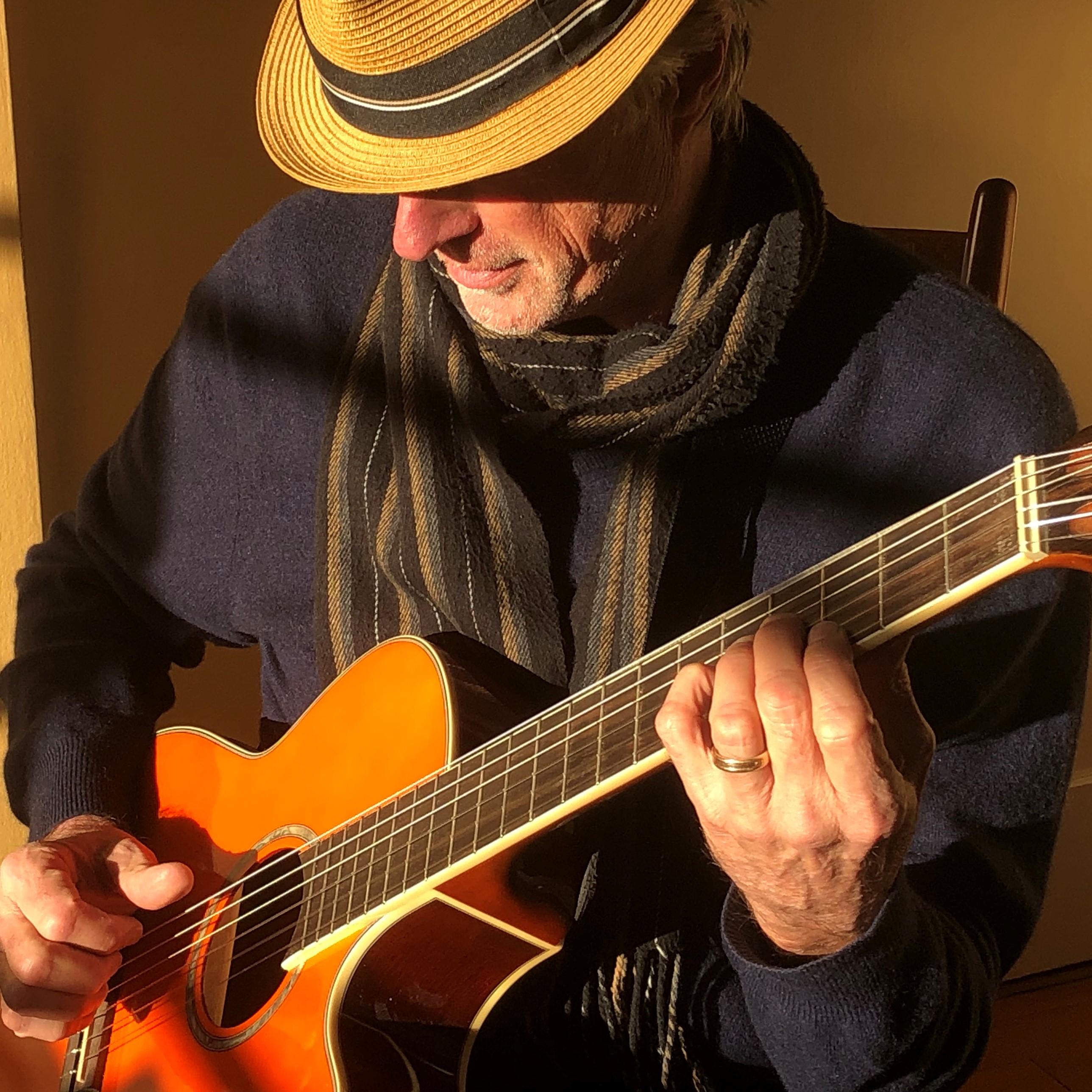|
Brian Butler: BUTLER'S BLUES
Reviewed by Chris Lunn
In addition to being a superb solo blues guitarist, harmonica player and soulful big-voiced singer, Butler is a commensurate writer and tunesmith. A couple of his originals are among a body of songs that I always want to hear. Butler is also a solid blues backup and lead guitarist. So now (like Steve Beck; see previous issue) he has over the past few years acquired his own studio sound recording equipment and learned the programs and techniques to create his own recording. Of the thirteen songs, all but three are penned by Butler. The first is "Johnny Young ", about a blues mandolin player from the 40s and 50s in Chicago as the electric blues scene developed. He takes this in the harmonica/guitar style closely associated with Broonzy, McGhee and Terry. The sound is clean; singing is direct and clear. The pulse of Butler's guitar moves as Butler sings of this Chicago bluesman at his greatest and who hit hard times. Guitar solo rolls back and forth with solid hesitations and quick holds that draw the listener in the rhythm. The ballad "Snow River" is a song about a Northwest river starting out in Monroe that now runs in a ditch; you would not recognize her now. His line "twisted the natural thing" as developers take over. Powerful song and one of my favorites. He made the guitar backup a bit more bluesy to fit this collection, but I preferred the more ballad guitar on his previous recording of this song. Butler take the Earl Thomas tune "Lead a Horse to Water" with a jug band and Dan McKinstry-like sound. Words in this loping tune spill out and one is totally taken in, shuffling along to the guitars and touches of harmonica. Superb rhythm. Back to his own song in "Taking the Train."
Butler has a run that weaves the rhythm as the blues works almost into minor line. He talks about taking the train to get some money, but all things are going wrong. This is blues with its slightly modern feel.
Blues writing has always had these exaggerated images of what a man or woman would do to keep love, get revenge, win love back. Here Butler uses an "Atomic Bomb" that he bought for his sweetie and then ends up having to buy his own. This is very 1930-40s blues with slow, standard straight-ahead lines reminiscent of Broonzy, Hopkins and Shines. Solid straight ahead. The weaving line with dobro has a twirling rhythm in mid-tempo. Love the line "races is over and it looks like the rats have won." Sounds like politics! Great driving mid boogie style on dobro, never pushed but bringing you in. "Oxbow Blues" has intricate fingerpicking with cascading lines again right out of the 40s and 50s. Highly rhythmic with sailing lines and a punch at the end. Superb guitar blues solo. With sort of John Lee Hooker guitar entry, "The News About Billy" speaks of hearing about the death of a friend and pulling off the road in tears, remembering an earlier time. Is it something out of real life? Ask Butler the next time you hear him. "A Nickel and a Nail" by Morrisson and Malone is a superb blues about having only a nickel and a nail in your pocket, being broke, and what that means. Butler makes this song his own. This is a bit more modern with weaving, crying guitar working some in minor areas. Butler's vocal with its touch of gravel sails and extends over the rhythmic pulse. His diction is so precise while conveying all the lowdown blues feeling. "River Roads" has guitar runs with a bit of slap back, as Butler takes in the traveling, the cities and how he needs to find the river and its calming effect. Maybe the river will let him recover. Guitar is a bit more modern, driving and bluesy all the way. Fred Neil's "Yonder Comes the Blues" is like a talking blues just barely sun with the light fingerpicking mixing a Libba Cotton and Mance Lipscomb sounding work. "Place Pigalle" is about a watering hole in Seattle with blues players, booze and women to get to know. He takes his in old style 40s blues with gravel in his throat as he punches both the guitar and vocal describing the atmosphere and characters. The line "Devil is trying to get a gig at Pigalle" sums it up. This is a CD you need to buy and take home. Solid blues all the way, superb, distinct, clear vocals with just enough grit. Superb guitar on lots of guitars. Good picture of what he writes and what you would see in a solo acoustic gig. Well done. Packaging is simple, just two panels, black and white on cover font and back, list of tunes and times, simple credits and contact info. CD has just name and title, nothing else, no back binding info for shelf retrieval. Simple packaging for a complex bluesman with decades of playing and writing and singing that works.
|

